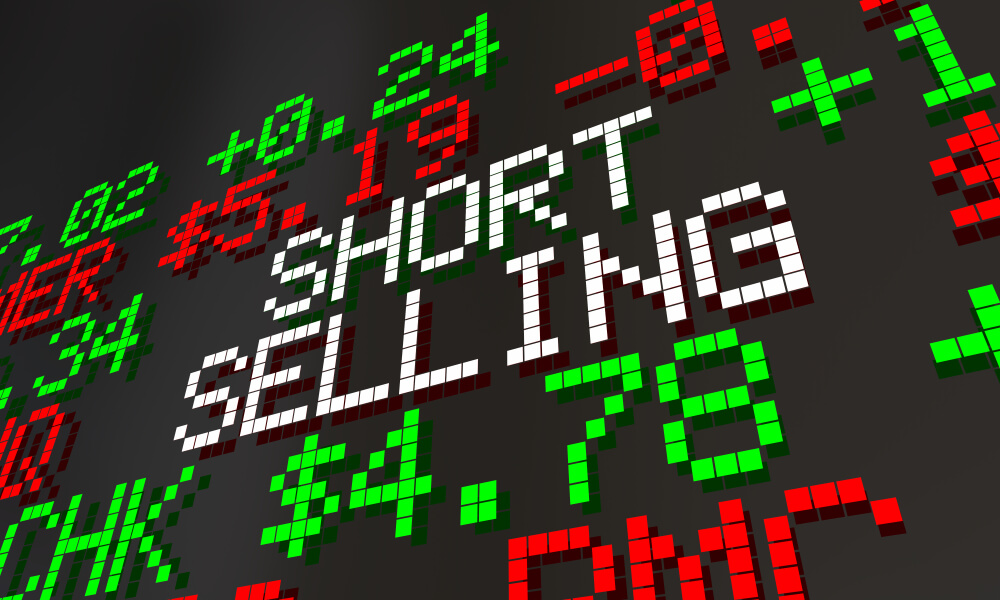If you want to see how truly bad a short sale can go, take a look at the recent trading in GameStop Corp. (NYSE: GME).
 First, a little background, GameStop runs a chain of small-format retail stores that sell video games, consoles and assorted merchandise or accessories.
First, a little background, GameStop runs a chain of small-format retail stores that sell video games, consoles and assorted merchandise or accessories.
When I want to buy my boys Fortnite action figures or a retro Legend of Zelda t-shirt, GameStop is the first place I look. Or at least it used to be. Now I can buy the same stuff online from the comfort of my couch.
GameStop is best known for its used game business. You can sell used games for cash or trade-in value.
And therein lies the problem.
GameStop’s core business is under attack on multiple fronts. Amazon.com and other online retailers assault its memorabilia arm. At the same time, its used game business faces the risk of irrelevance in the age of downloadable games, such as my kids’ favorite (and the bane of my existence) Fortnite.
While plenty of gamers still like owning the physical media because it uses less on-board storage and gives them something to eventually resell later, the path of least resistance is simply to download the game and be done.
Again, using my own family as an example, I used to buy physical copies of all of my kids’ games. Today, I would say we download 80%.
All of this was true before the COVID-19 pandemic. We then had months of sporadic lockdowns and social distancing requirements that hit brick and mortar retail hard. That one-two punch makes GameStop a popular target for short sellers.
GameStop’s Surge Proves the Dangers of Short Selling
Short sellers borrow the shares of companies they believe are overvalued and then sell them. They sell shares they don’t actually own with the obligation to buy them back and repay the owner whose shares they borrowed.
And here’s where it gets fun.
Remember, when you sell a stock short, you eventually have to buy the shares back. If you sold the shares at $20 and buy them back at $10, fantastic! You pocket the difference.
But when the price goes the wrong way on you, it gets nasty. Your losses could be unlimited.
Someone selling GameStop shares around $20 per share earlier this month would have likely been getting margin calls when the shares hit close to $160 per share on Monday. They’d have to scramble to find the cash to cover the $140 per share deficit.
This is a classic short squeeze; GME became a lopsided bet. There were too many short sellers borrowing far too many shares.
And faced with a suddenly soaring share price, those short sellers were forced to buy — at any price — to stop the bleeding. Their panic buying acts like gasoline on the fire, adding massive amounts of buying pressure to a stock that suddenly has no sellers.
In the case of GameStop, the short squeeze appears to have started on a Reddit message board. A group of do-it-yourself value investors began to pile into the stock. One thing led to another … and then, BOOM! GME shares exploded by a factor of eight in less than two weeks.
Is there a lesson to learn from this?
There are a few, actually.
3 Lessons When Short Selling
1. You should be very careful short selling. It’s probably best not to short at all. If you want to bet against a stock, there are safer ways to do it, such as by buying puts. When buying a put option, you can lose the entirety of your investment. But that’s it. You can’t lose more than you started with. In a short sale, your losses are potentially unlimited, as many a GameStop short was recently reminded.
2. The size of your position is important. If you shorted GameStop and had to cover at the worst possible price, you lost money. But if your position size was modest enough, you at least won’t be in bankruptcy court. So, if you ignore lesson number one, at least heed lesson number two and keep your short positions modest.
3. Watch out for crowded trades. It may sound cliché, but when everyone is on one side of the trade, it’s better to take the other side. This is as true of the stock market as it is of sports betting. When a trade is lopsided, the risk and return trade-off is also likely lopsided. You want to be on the side with greater potential return and less potential risk.
To safe profits,

Charles Sizemore is the editor of Green Zone Fortunes and specializes in income and retirement topics. Charles is a regular on The Bull & The Bear podcast. He is also a frequent guest on CNBC, Bloomberg and Fox Business.





